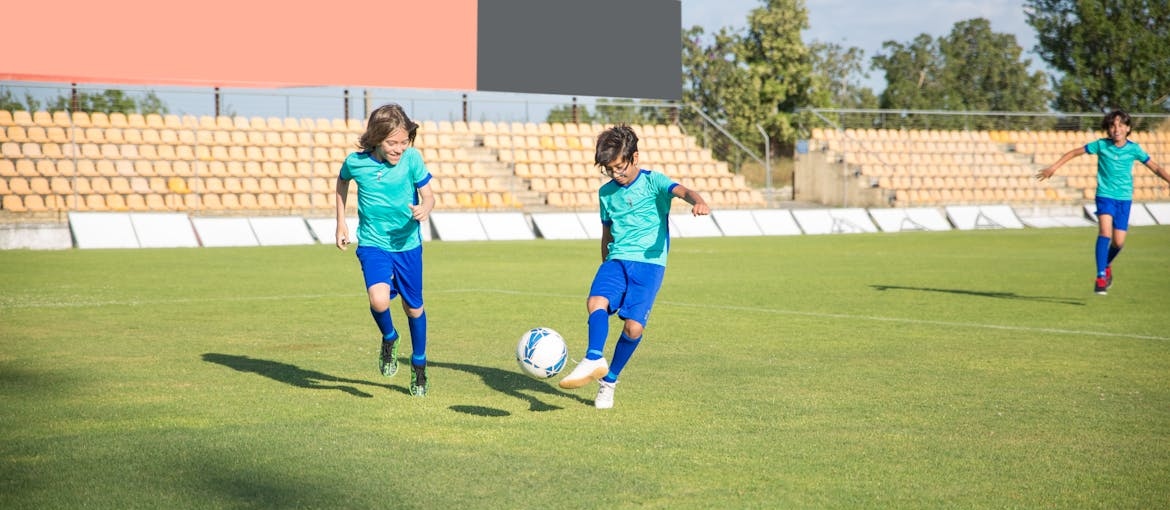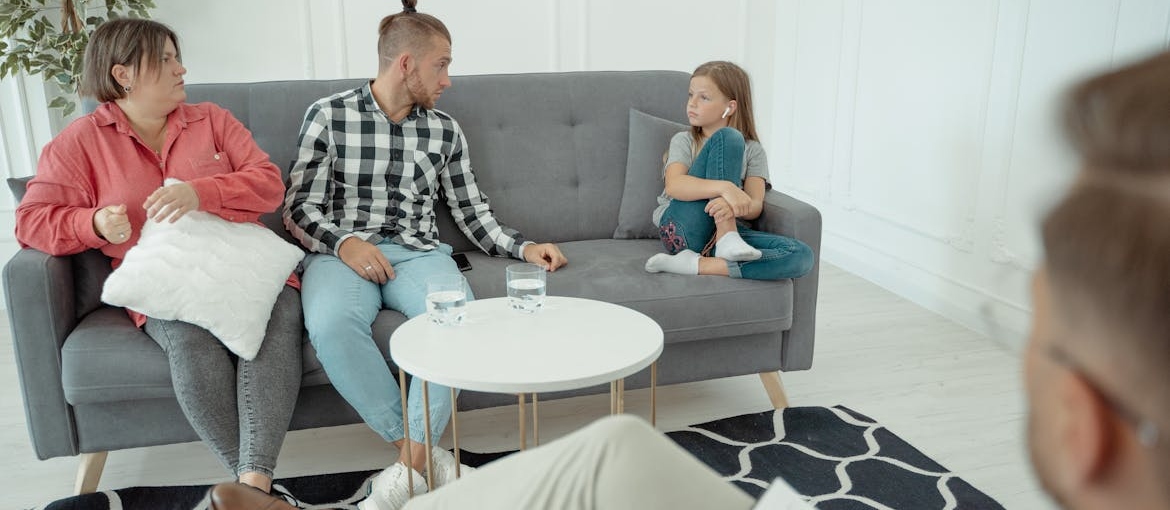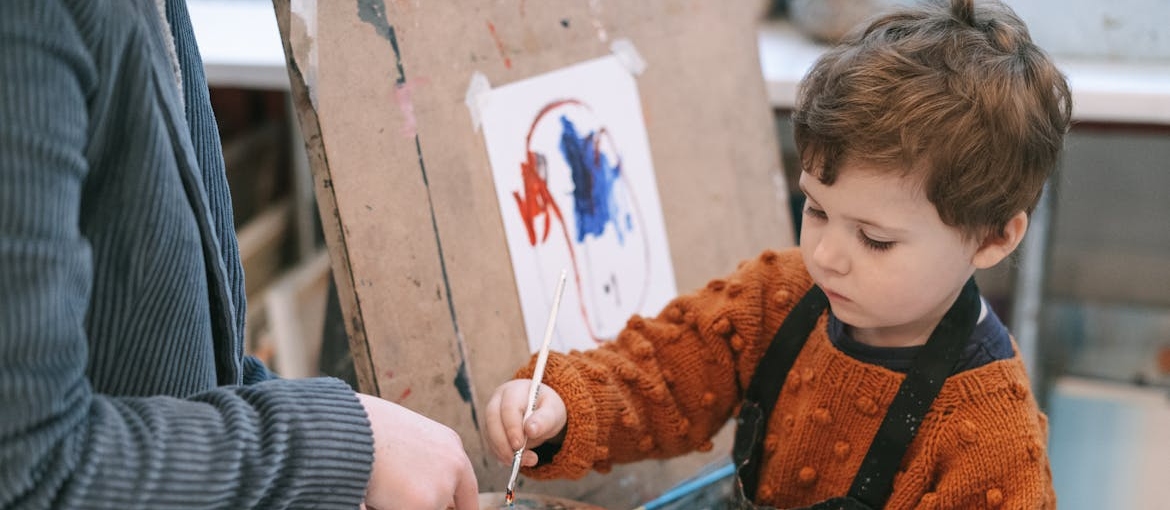Children often feel lost when a parent struggles with addiction. They may carry fear, shame, or guilt without knowing how to express it. If you’re helping a child whose parent is struggling with addiction, you already know how heavy this can feel. Kids need stability, reassurance, and a safe place to share their feelings. They also need honest but gentle explanations that match their age. Small steps like keeping routines, encouraging healthy outlets, and giving them space to talk can make a real difference. Support doesn’t have to come from parents alone—teachers, relatives, and counselors can all play an important role. Addiction impacts the whole family, but with care, children can grow stronger. We’ll try to give you clear ways to support their healing.
Understanding the Impact on Children
Addiction affects more than the person using substances—it deeply impacts the entire family. Children may feel guilt, confusion, or even responsibility for their parent’s struggles. These emotions can shape how they view themselves and others. The impact of parental addiction on child development is serious, influencing emotional health, school performance, and relationships.

Some children may withdraw, while others act out in frustration. Helping a child whose parent is struggling with addiction means recognizing these challenges early. With guidance, they can process feelings and build resilience. Support from schools, counselors, and caring adults is vital. Kids need consistent encouragement and safe outlets to grow. When families take steps to address these effects, children gain the chance to heal and find hope in healthier environments.
Communication Strategies That Build Trust
Children need clear communication to feel safe when their parent struggles with addiction. Simple, honest words can make a huge difference. They need reassurance that the situation is not their fault. Listening carefully and answering questions in ways that match their age helps ease fear. Here are strategies that can help build trust and comfort:
- Use simple, age-appropriate language to explain addiction.
- Reassure them they are not responsible for the addiction.
- Encourage questions and answer with honesty and patience.
- Listen without judgment and validate their feelings.
- Keep communication open through regular check-ins.
Supporting a Child’s Mental Health
A child’s emotional health must be a priority when addiction is present in the family. Therapy gives them a safe space to express fears, sadness, or anger. Individual therapy for addiction can help parents, but children also need access to their own support. Counselors and school professionals can teach coping skills and healthy outlets. Helping a child whose parent is struggling with addiction sometimes means involving multiple professionals to provide balanced care.
Activities like journaling, sports, or creative outlets also build resilience. Children benefit from knowing they are not alone and that their feelings matter. Professional guidance shows them healthy ways to process stress. Consistent support helps protect their mental health and allows them to focus on growth, healing, and building a stronger sense of self.

Practical Ways to Provide Stability at Home
Children thrive in stability, and addiction often disrupts that sense of safety. Creating reliable routines, setting boundaries, and encouraging positive outlets can help restore balance. Even small, consistent steps make children feel more secure. Supporting daily structure also gives them a sense of normalcy. Here are some practical ways to provide stability and reassurance in the home environment:
- Set daily routines for meals, bedtime, and schoolwork.
- Create household rules that are fair and consistent.
- Provide healthy meals and encourage regular physical activity.
- Offer quiet time for reading or creative activities.
- Limit conflict in front of children to reduce stress.
When Rehab Becomes Part of the Family’s Path
Rehab is often seen as a step just for the parent struggling with addiction, but it’s bigger than that. It affects the whole family, especially children who often feel confused and scared. Talking openly about rehab can help reduce shame and bring clarity. It also shows kids that recovery is possible. Let’s look at how programs involve families, why therapy matters, and how to explain rehab in ways children understand.
Family Therapy in Rehab: Giving Children a Voice
Family therapy is one of the most powerful tools for recovery. It creates a safe space where everyone can speak openly. Family therapy for addiction helps children express feelings they may have kept inside. Many kids feel guilt, confusion, or anger when a parent struggles with addiction. Therapy allows them to share those feelings without fear. Parents also learn healthier ways to communicate, listen, and respond.
This process helps rebuild trust that may have been lost. Helping a child whose parent is struggling with addiction is easier when professionals guide these talks. Children feel heard, and parents better understand how their behavior affects the whole family. Over time, these sessions strengthen relationships, improve problem-solving, and teach new coping skills. It’s a healing process that benefits everyone involved.

How Rehab Programs Support Families of Addicted Parents
Rehab isn’t only for the parent; it also supports families. Many rehabs in WV provide family-focused care that helps children feel less alone. Programs include counseling, group sessions, and education about addiction. These resources give families the tools to rebuild trust and restore stability. For kids, seeing their parent in treatment shows recovery is possible.
For parents, it’s a reminder that their healing impacts everyone. When families take part in treatment, they gain skills to handle stress, communicate better, and offer steady support. Helping a child whose parent is struggling with addiction often requires this kind of structured care. It creates a safe space for open conversations and offers children the comfort of knowing their feelings matter. Rehab can be the start of real change for the whole family.
Explaining Rehab to a Child in a Positive Way
Children often fear the unknown, so explaining rehab clearly is important. Keep it simple, honest, and hopeful. Tell them rehab is a place where people get help to feel better. You can compare it to going to the doctor when someone is sick. When parents use examples like rehab for veterans, kids may understand it’s normal for people to seek treatment. This reduces shame and confusion.
Helping a child whose parent is struggling with addiction means giving them answers that calm fears rather than create more. It also means letting them ask questions and share feelings. When kids see rehab as a positive step, they feel safer and more hopeful about the future. Your words can shape how they view recovery and their role in the healing process.

Resources for Families Facing Addiction
Families facing addiction often feel isolated, but there are many resources designed to help. Children, in particular, need outlets and guidance to manage their feelings. Support groups, community programs, and rehab resources can play a vital role in helping them. These services provide structure, understanding, and professional tools. Let’s look at how groups and programs work and how rehab centers continue to help long after treatment ends.
Support Groups for Children of Addicted Parents
Support groups give children the chance to meet others who share similar struggles. These spaces reduce shame and create a sense of belonging. Talking to peers helps kids realize they’re not alone. Some groups use activities, games, or art to encourage expression. Professionals often guide discussions and provide coping skills. Programs that include motivational interviewing for substance abuse also give parents tools to improve communication.
When both parent and child have access to support, families start to heal. It creates opportunities for children to ask questions and process emotions in a safe, caring environment. These groups remind kids that their voices matter, and that healing is possible. Support groups are often the first step in rebuilding trust and confidence for children impacted by addiction at home.
Community Programs That Provide Safe Spaces
Children need more than therapy—they also need safe places outside the home. Community programs give them positive outlets where they can feel secure. Many of these programs focus on building confidence, teaching new skills, and creating strong relationships. They offer safe settings for kids to grow, explore, and connect with others who care:
- After-school programs: Provide structure and adult support.
- Youth sports clubs: Encourage teamwork and physical health.
- Art and music classes: Help children express emotions creatively.
- Mentorship programs: Connect kids with positive role models.

How Rehab Centers Connect Families With Long-Term Help
Rehab doesn’t end once a parent finishes treatment. Many centers stay connected with families to provide ongoing care. This often includes referrals to therapists, educational workshops, and local community programs. Centers that accept blue cross blue shield drug rehab coverage make it easier for families to access help without the heavy financial burden. Long-term care is essential because children need stability over time, not just during treatment.
Families also benefit from continued education about addiction and recovery. Ongoing support helps parents remain focused on sobriety, while children continue to receive emotional guidance. These resources prevent families from feeling abandoned after rehab ends. With consistent care, the progress made during treatment can last. For children, this support is the difference between lingering fear and long-term healing.
How Loved Ones Can Step In
Extended family and close friends often play an important role when a parent battles addiction. They can provide stability, guidance, and emotional care children might not receive at home. Helping a child whose parent is struggling with addiction may involve grandparents, aunts, uncles, or mentors stepping into daily life.
Professional programs such as an intensive outpatient program West Virginia has also include family involvement, giving loved ones tools to support recovery. This shared effort allows children to feel surrounded by care. A strong support network helps them see that adults are there for them, no matter what. Loved ones can provide comfort, keep routines steady, and give children safe outlets. Their involvement lessens the weight children carry and provides hope during difficult times.

Long-Term Healing and Growth
Healing after addiction is a lifelong process, and children need long-term guidance too. They benefit from positive outlets, consistent encouragement, and opportunities that build confidence. Structured activities, role models, and community resources make recovery more sustainable. Growth happens when children know they are supported over time. Here are effective strategies that promote lasting healing and development for children:
- Encourage hobbies that build confidence and social connections.
- Provide access to mentors and positive role models.
- Celebrate small achievements to boost self-esteem.
- Teach coping skills for handling stress and emotions.
- Keep children involved in safe, supportive community programs.
Act Now to Protect a Child’s Emotional Wellbeing
Helping a child whose parent is struggling with addiction is never simple, but your support can change their path. Children need stability, honesty, and reassurance to feel safe. Even small actions like listening without judgment or keeping routines give them strength. Professional help, including therapy and rehab programs, can also provide resources that children and families cannot find alone. You don’t have to carry the weight by yourself—schools, relatives, and community groups can stand beside you. The most important step is showing the child they are not alone and that their feelings matter. Addiction may cause pain, but healing is possible with steady guidance and care. With the right tools, children can find hope and build a future not defined by their parent’s struggles.



